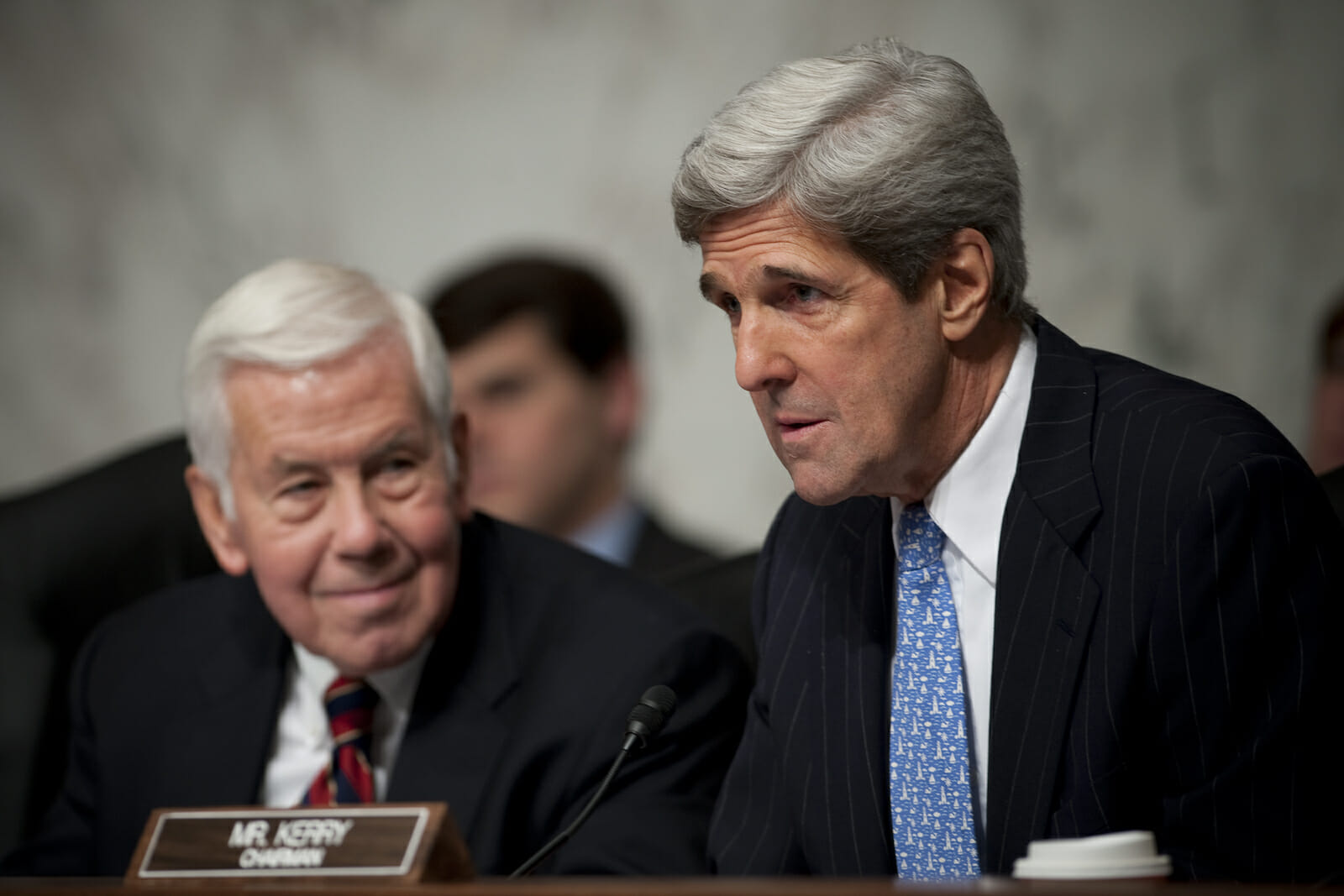
Can John Kerry Change Foggy Bottom Culture?
As the next Secretary of State, Senator John Kerry will need to focus on changes at the Foggy Bottom headquarters in Washington, DC. At the top of the list is redundancy—overlapping job descriptions—which needs to be streamlined. The constant rotations of Foreign Service Officers (FSOs) should be considered, followed by an overhaul of the Employee Evaluation Review (EER) system for promotions, in which peers take part in the preparation and approval process. Above all, the State Department needs to change how we deal with the host countries. To win back friends, we need to be more consistent, and not just be a provider of aid.
The State Department needs to deliver on its promises. Our form of democracy may not take hold everywhere, so we need to listen to what the countries want to achieve—and work with them. The current State Department culture emanates from the Foreign Service Institute training center, which needs a greater diversity of instructors and experts from the private sector, with management and business skills, to enhance embassy operations.
Most deputy chiefs of mission today come from the political track, which seems to get more exposure at the State Department. Narrow guidelines do not allow highly capable, multifaceted officers to move from one track to another. A management officer who worked at my embassy had a financial background, knowledge of embassy operations, excellent reporting and people skills, and saved the government over $1 million, but that was not good enough to give him a chance to advance to the top.
The lack of cross-breeding between the political, management, public affairs, economic, consular, and security tracks needs to change. Candidates are not prepared for the wide range of challenges and business decisions they will face in operating an embassy, especially in today’s complex environment.
State Department officers spend from one to three years in their positions, before rotating to new assignments. This rotation process is a common practice at other government agencies that embassies have to deal with, which is an inefficient way to carry out our foreign policy. Each time a new person arrives on the scene, time is wasted bringing them up to speed. Embassies lose time reviewing issues previously covered, and are hampered by differing levels of experience within the same job position.
The State Department needs to focus more on attracting potential top-caliber FSOs from the private sector. We need to weed out people who add little to the bottom line, but are protected by the ‘tenure’ system. At the same time we cannot run lean at our embassies—especially at the smaller missions, which are often already understaffed. Much of the work performed is by the local hired staff—the backbone of the embassy—who receive little credit and are underpaid for what is expected of them.
Our embassies are the first line of defense. As such, some of the host countries are in strategic locations, while others are in more dangerous, conflict areas. All of our embassies however, must operate in a more secure environment. At the same time, we need to nominate and confirm ambassadors and other agency leaders more quickly—not held up by senators for political or other self-serving reasons. Our overseas posts are important in carrying out our foreign policy, security, bilateral relations, and information gathering. We are living in the most crucial time in modern history, since the Cold War. Then we could see our enemy, which is no longer the case. Today’s enemy has no name, no face, no uniform, and not even a standing army.
Africa is the second largest continent with over one billion people, of which almost half are of the Muslim faith. Since the early 1990s Islamist extremists have taken root in the Horn of Africa and Sahel region. Al-Qaeda and affiliates have training camps in a number of African countries; working to gain a foothold in every country that has a significant Muslim population, and to destabilize Western interests.
Budget cuts mandated by Congress have affected our embassy programs and operations around the world. However, terrorist attacks and threat of attacks gave rise to an increased budget for a new Diplomatic Security Service (DSS), and over eight hundred new security positions were created, which should have provided a more secure environment for these missions. During the most trying times from 2001 to 2005, we saw more than one thousand new positions assigned to Afghanistan and Iraq, yet there was still a shortage of more than one thousand positions at our embassies around the world.
Part of the problem with our foreign policy is that we will not engage with people we consider our enemy, and in a number of cases have used our military might to resolve political and ideological differences. Fighting does not always provide for a long-lasting, peaceful outcome. Engaging with the countries is better than having CIA operatives or military troops on the ground, as they are often perceived as destabilizers, invaders, occupiers, or infidels.
In dealing with our foreign policy, we should not give up our long-established democratic principles and tenets of freedom, but we need to work within a framework of understanding other cultures. It will be difficult for democracy, based on the U.S. model, to gain traction in the destitute conditions of many of these countries. Poverty’s companion is hopelessness and a susceptibility to reach out to anyone who is willing to help. Islamist extremists and al-Qaeda are willing to fill this void of hope for them.
The State Department needs to ask whether we have done enough to reduce poverty by offering solutions for job creation, health care, and secular education—as well as hope for the future. Has our aid and debt relief helped to reduce the potential for terrorism? We need to understand the thousands of years of history, with the many different ethnic and tribal cultures; the impact of European traders, missionaries, and colonialists. We need to be sensitive to the inequities created by power struggles, interethnic conflicts, and thoughtless partitions of historical ancestral lands.
Even though it has been over fifty years since independence for many of these countries, it may take another fifty years before democracy takes hold. If the United States insists on placing too many conditions on economic assistance programs, after years of either ignoring or interfering with the internal affairs of these countries, we will lose any influence we have left in these countries. To gain respect and effect change, our model of democracy, alien in this part of the world, must become a secondary issue. As the United States fully engages the African continent, we will have a greater chance of leaving a positive footprint, guiding these countries to the path of freedom and prosperity, eradicating poverty, reducing the impact of disease, and diminishing the influence of the Islamist extremists.

